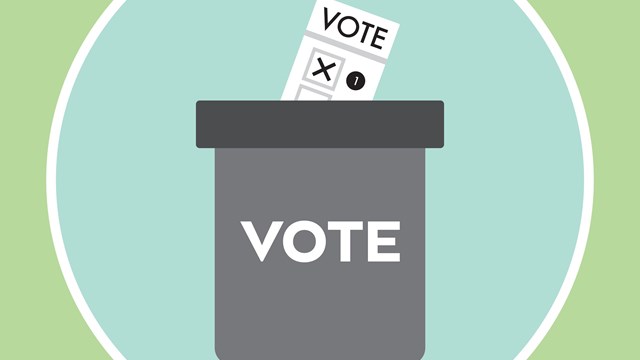Election season typically starts around Labor Day, when we start to be bombarded with reminders to cast our ballots to choose who we want to be in charge of our city, town, state and country. It ends on Election Day in November, when the voting is completed, the tallying is done and a winner is announced. In a co-op and condo association, a similar type of annual election process takes place—an election to choose a board of directors that will work with the building’s manager to make sure the community’s finances, physical maintenance and other day-to-day business remains solvent and sound.
When it comes to actually running the elections, however, the biggest concern among those involved is making sure the elections are fair and balanced and nobody has a reason to cry foul. Elections can be heated as it is, so the voting process should run smoothly and without any hiccups. Linda Chiarelli-Gibbs, president of Honest Ballot Association in Floral Park, remembers one extremely heated election she monitored where physical fighting even broke out. “It was bad,” she says.
Sometimes it's not a problem of ballot-counting, but of actually getting anybody on to the ballot in the first place. Robert Tierman, a partner with Litwin & Tierman, P.A., with offices in New York and New Jersey, remembers one co-op that had a problem of getting shareholders who actually wanted to run for a position on the board of directors. “This led to there not being an election; whoever wanted the position just got it,” he says. “The board was not fully constituted and there was a vacancy for a whole year. No major issues resulted from the situation but the board was less efficient and effective.”
So is the term ‘fair election’ an oxymoron? Although unfair elections—where there have been broken voting machines or improper ballot counting—make front page news, the truth is that it’s not common for elections to be unfair, at least technically speaking. On the other hand, it’s pretty easy to have a fair election for a co-op or condo board if these few basic guidelines are followed.
Follow the Bylaws
Check the bylaws to find out how often your elections should be held, and when. Typically, elections are held annually. Tierman explains that if a board hasn’t held an election within one month after the date in the bylaws or 13 months after the last election, or if the board doesn’t call for an election within two weeks and conduct one within two months, shareholders can demand one by petition. “The shareholders must have an aggregate of at least 10 percent of the co-op's stock and the co-op is obligated to conduct it between 60 and 90 days later,” he says. “For condos, the law requires at least one-third of the board be up for election each year.”
The election process is usually the same for co-op and condo buildings. “For co-ops, each shareholder is entitled to a number of votes equal to the number of shares they own,” says Tierman. “For condos, each unit could be allocated a number of votes equal to the percentage of common interest owned, but some condos allow unit owners to vote on a one-vote-per-unit basis.”
He also explains that each co-op shareholder or condo unit owner can be allowed to cast the number of votes allocated to such owner for a number of candidates equal to the number of board seats up for election. He also explains that as an alternative, some co-ops allow what’s called cumulative voting, where shareholders can multiply the number of votes they have times the number of board seats up for election and then distribute the total among one or more candidates of their choosing. Although it sounds confusing, the bylaws are a great instruction manual to having a fair election—so reading them, understanding them, and applying them to elections provides a virtual road map through the process.
Get Outside Help
If your board doesn’t want to be personally responsible for administering the election, an outside vendor can run the election. The vendor can handle a part of the event, such as tallying up the votes, or they can run the entire election.
Gibbs' company was actually founded by Theodore Roosevelt in 1909. “He started this association because he wanted to have honest and fair elections and it’s what I go by,” says Gibbs, who runs elections for co-ops, condos, unions, associations and some counties. “I’ve worked on terraces if the lobby is too hot, a local school or church if the building doesn’t have a place to hold an election—even in a laundry room.”
It’s definitely not a fair election if the people aren’t there to vote, so make sure to spread the word that it’s taking place. Again, the bylaws will let you know how to do that. “It’s not a law but the bylaws say that you must notify everybody at least 10 days before an event. “The board should notify each shareholder in the method in which it normally communicates with shareholders,” says attorney Steven Glassberg of Glassberg & Associates, LLC in New York City. “If it’s a statement, put it with the maintenance—also posting in elevators and other common areas is a good idea.”
Once the word has been spread, it’s time to vote. “How we do the voting depends on the election,” says Gibbs. “We can do a machine vote, touch screen, scanners or paper—it all depends on the building and the community.”
Prepare the Proxies
Not everyone can make an election but they still want their votes to count and that’s where the proxy comes in. “Proxies allow an apartment owner to vote even if they aren’t present at the election,” says Tierman. “The owner must designate a proxy in a duly executed writing. Usually co-ops and condos provide a form for this that is distributed to apartment owners in advance of the meeting. The goal is to get enough apartment owners voting by proxy to supplement those actually attending, and yield the majority necessary to conduct the election. In the proxy, the unit owner can either designate the board members for whom the proxy must vote, or give discretion to the proxy to vote as they see fit.
Proxies are revocable, which means the unit owner can change his or her mind, and they expire after eleven months. “Proxies are sometimes difficult for shareholders to understand,” says Gibbs. “In my opinion, it’s always been a hassle with them because people complain that others have gone out and gotten proxies. Any proxy will hold up in court, even if you wrote it on toilet tissue, as long as the property lease owner is in the apartment. They can always designate someone to vote for them.”
Count the Votes
With all the ballots and proxies in, it’s time to tally up the votes and see if John Q. Smith won a seat on the board of directors.
Companies like Gibbs’ can do the counting or, says Tierman, “The co-op or condo president appoints two or three inspectors of election, who are asked to sign an oath indicating that they will count the votes honestly and fairly. It also is a good practice for the ballots to be sealed in an envelope or the ballot box, with the seal broken and the ballots removed only under the supervision of the inspectors of election,” he says.
Demand a Recount!
Well not really. Typically recounts are not demanded or conducted unless a small number of votes determined who was elected or there is some suspicion that the count was not properly conducted. “An apartment owner can seek court review of the count or any other aspects of the election by filing a petition with the court within four months after the election,” says Tierman. “Typically, apartment owners controlling 25% of ownership interests can demand a special meeting to vote on the removal of one or more board members.”
Like fingerprints and snowflakes, every election is different and unique and can bring with it a host of excitement and problems. Tierman tells the story of a Manhattan co-op where a board member was indicted for allegedly committing a financial crime unrelated to the co-op. The board asked him to step down and he refused. “Since the annual election was approaching in several months, the board decided not to call a special meeting to remove him,” says Tierman. “The annual election approached and he insisted on running for re-election. There was no provision of applicable law or the co-op's bylaws that prohibited his running.
The board member said he was unfairly accused and should be deemed innocent until proven guilty. The board removed him from the board-nominated slate but they were uncomfortable knowing that he could still be re-elected. “The board advised him that if he did insist on running, they would have no choice but to disclose to shareholders prior to the election, that he had been indicted. At the meeting, he finally saw the light and withdrew his candidacy. The lesson is that the board concluded that the only way to deal with the situation was to let them decide whether to re-elect him in spite of the indictment.”
“There are lots of challenges,” says Gibbs, who conducted a very highly-contested election where there were more proxies than people. She cites another election where it was claimed that the whole board was crooked. Overall, Gibbs says “there’s a lot of integrity for those people who are running for the board and those who are monitoring the election.”
Just as in a national or state election, one person’s vote might mean the difference between having a policy enacted or a new board put into place. Cast your votes wisely and be a part of the democratic process in your building community.
Lisa Iannucci is a freelance writer and a frequent contributor to The Cooperator.







Comments
Leave a Comment